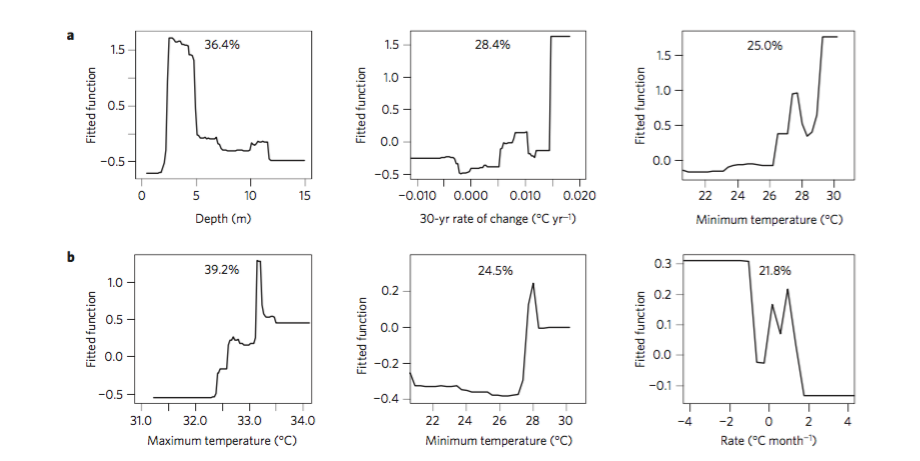Randall, C.J. & van Woesik, R., 2015. Contemporary white-band disease in Caribbean corals driven by climate change. Nature Climate Change, 5(4), pp.375–379. link
Populations of two dominant coral species, Acropora palmata and Acropora cervicornis, have declined more than 90% in the past 40 years. This decline is mostly attributed to white-band disease. Although other coral diseases have been linked to increases in sea surface temperature (SST), there is no definitive evidence for this in white band disease. To understand the response of white band disease to climate change related variables, the authors used boosted regression trees (BRTs), with presence and absence of disease data in a total of 473 coral colonies from 1997 to 2004. Stochasticity was incorporated into their models by bagging to fit each new tree and a k-fold cross-validation was used to train (90%) and test (10%) each model. The relative contribution of each predictor variable was estimated, and any interactions between predictor and variables were examined. Their models performed well for both species, with AUCs of 0.85 and 0.72. For both species, a rise in minimum SST seemed to play a role in the increase in white-band disease. For one of the species, the rate of increase in SST over the past 30 years showed a steep rise in relative contribution to prediction of white band disease after about 0.015 degrees C per year. Since global models predict a mean increase in SST of .027 C per year from 1990 to 2090, many reefs currently without white-band are likely to have disease in the future.
